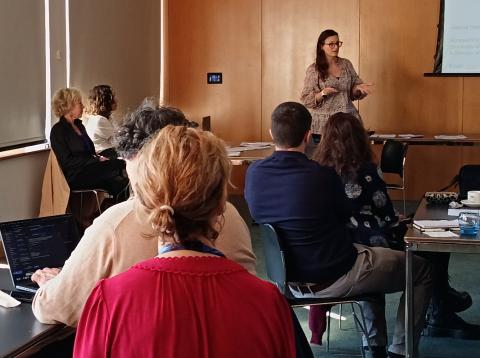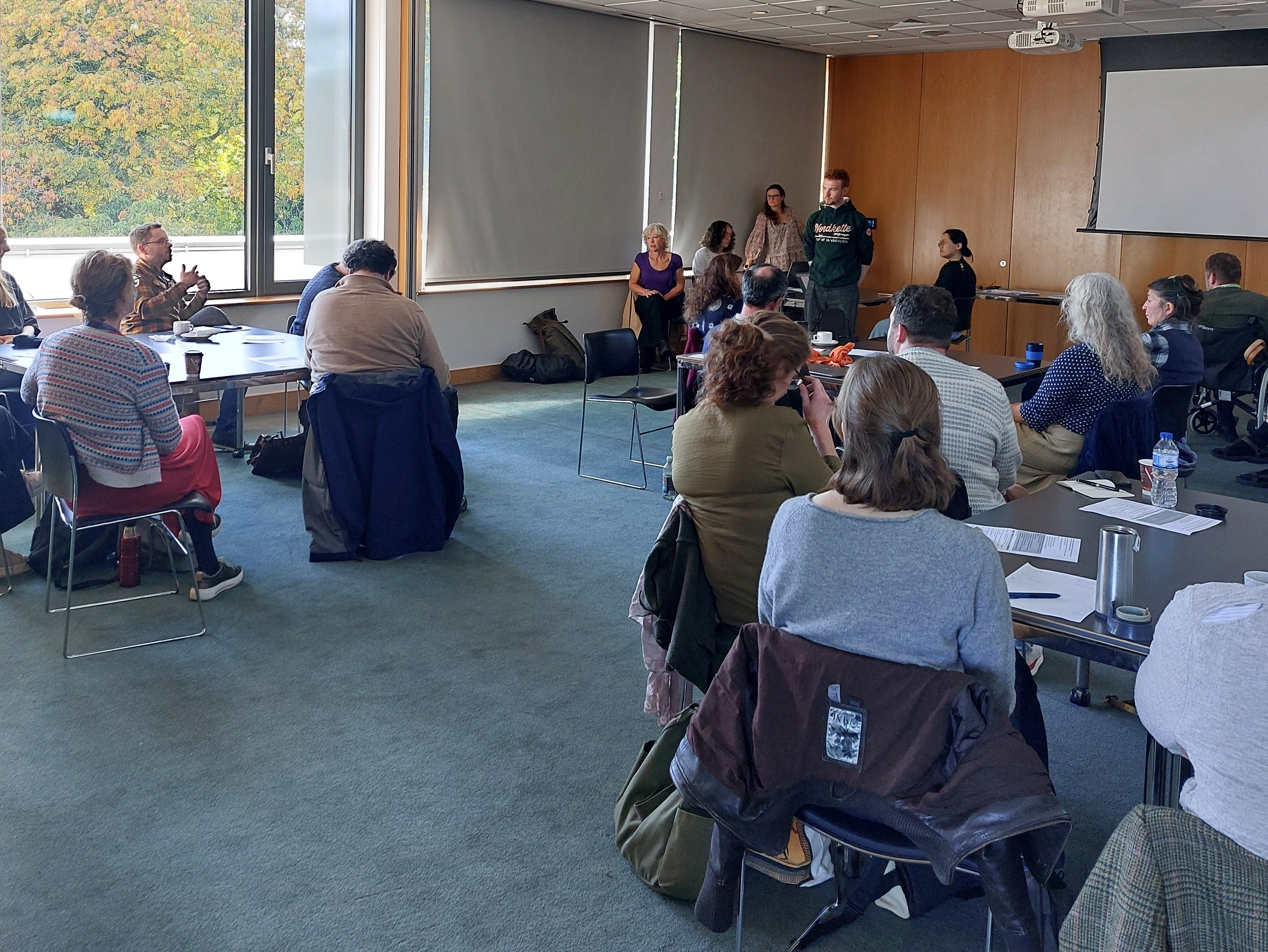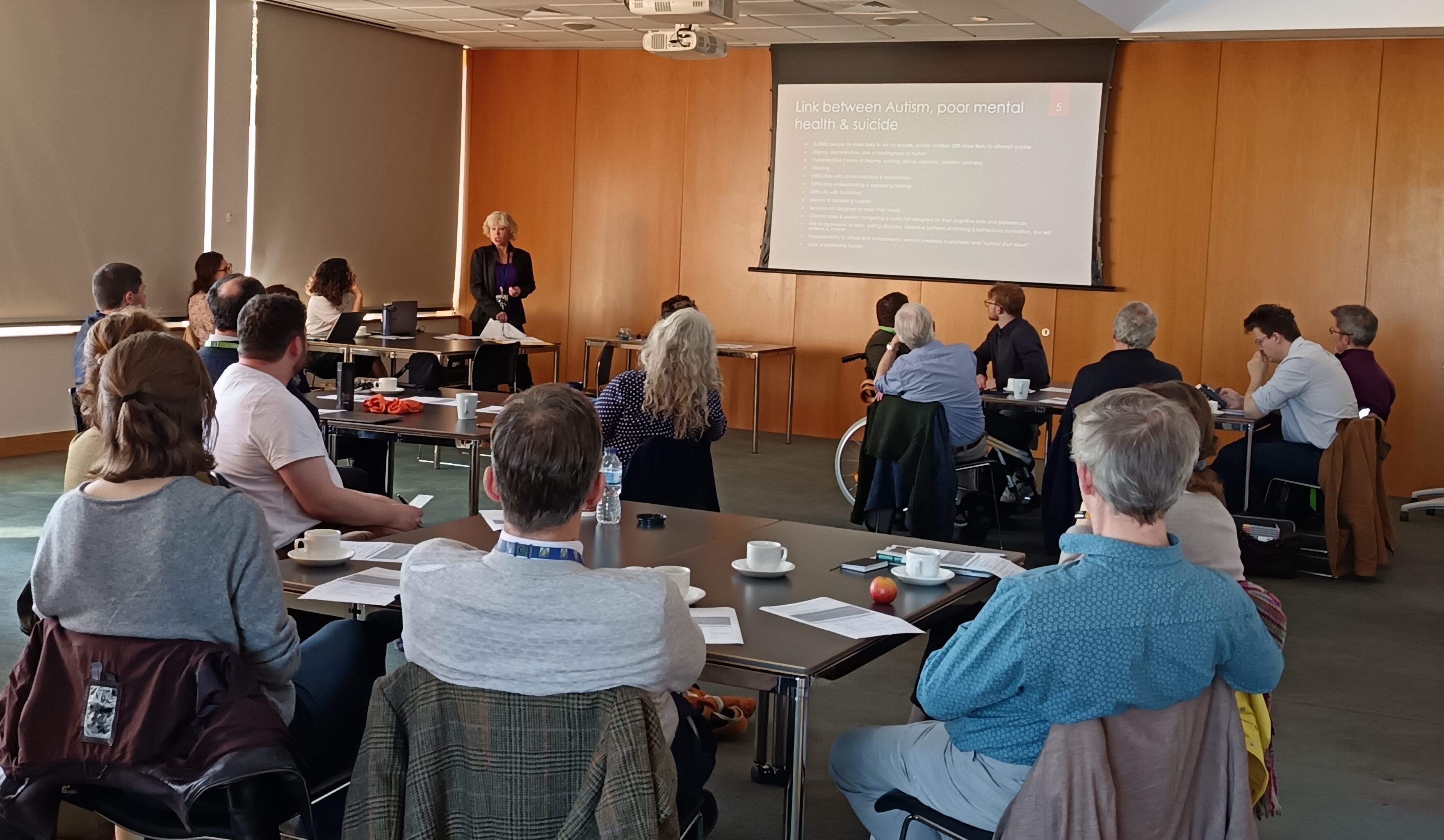Enhancing Support for Autistic Students at Robinson

Reflections on Recent Autism Training at Robinson
Ahead of the start of the new academic year, Robinson College’s Wellbeing Team and the University’s Accessibility and Disability Resource Centre (ADRC) delivered a training session focused on Autism. The co-developed session aimed to share and develop best practices to support autistic students more effectively.
Over the past three years, Robinson’s Wellbeing Team has taken a whole-college approach to strengthen individual and community student support and thereby reduce crises. This includes early identification of students with increased vulnerabilities and initiatives designed to improve overall student wellbeing. These efforts have culminated in the creation of the Robinson’s Wellbeing and Learning Strategy, which identifies four key priorities—one of which is increasing accessibility and neuro-inclusion. It recognises the strong links between neurodiversity and mental health, and the important role the college and staff teaching and supporting students have to play.
While recognising that Autistic students bring great strengths to the academic community, student experiences often echo the increasing body of research which finds that Autistic students encounter specific barriers to access and attainment with both academic and social aspects of university life (Vincent, Rowe, & Johnson, 2021).
Factors such as ‘masking’ to be accepted and conform to expected norms of behaviour, as well as a high demand on social communication, mean these students may not ask for or receive effective support even when they are struggling. This can result in achievement below their potential, a lack of belonging, and mental health issues such as depression and anxiety. There is a well-established link to heightened suicide ideation and risk, particularly when essential protective factors are absent. Such factors include feeling understood, valued and included, having choice and control, sleep, nutrition, physical activity, time and strategies for self-regulation and recovery, to avoid burnout.
The Robinson Wellbeing and Learning Strategy and this training therefore emphasises an anticipatory, proactive, and risk-reduction approach. For example, it was important to deliver this session at the start of a new academic year as this represents a time of transition (e.g. moving from home to college, adapting to more independent learning environments, and changing relationships). This is something Autistic students can find particularly challenging.
The training was co-developed and delivered by Joanna Hastwell, Autism Specialist at the ADRC, Karen Tate (Head of Wellbeing) and Fiona Davey (Student Wellbeing Advisor). It featured contributions from two current students—one undergraduate and one postgraduate—who shared personal experiences of navigating college life as Autistic students.
We were delighted to welcome 24 participants—including Tutors, Directors of Studies, and Supervisors. The session, held at Robinson’s Crausaz Wordsworth Building incorporated presentations, discussions, practical exercises, case studies, and guidance materials.

Participant Feedback and Key Insights
Feedback from attendees was overwhelmingly positive. They cited open and supportive atmosphere facilitated interest and meaningful engagement, and the personal testimonies of the students were particularly impactful. Their insights complemented and reinforced the research shared by the presenters.
Joanna Hastwell reflected that it has been a valuable opportunity to engage with colleagues from across disciplines and roles about how to improve access and the benefits of inclusive practices for both staff and autistic students. The two presenting students reflected that being part of this training had been an important opportunity for them and thanked the college for putting it on. Karen Tate reflected that working with Joanna and the students to create this training had resulted in an environment in which we could learn together and implement meaningful, practical change within our own roles.
Key takeaways from the course included:
- Clarity and structure: The importance of clearly communicated expectations in tutorials, seminars, and supervisions.
- Tailored communication: Providing direct, specific, and constructive feedback while being mindful of different learning and communication styles.
- Proactive engagement: Initiating open conversations with students—especially in relation to their Student Support Document (SSD), where applicable—to identify what worked best for each student.
- Inclusive practice: Recognition that many Autistic students may be undiagnosed, and that creating more neuro-inclusive learning environments benefits all students.
- Strengths-based perspective: Acknowledging the unique perspectives and contributions of Autistic individuals, which can enrich both academic discourse and research.
The session concluded with a strong interest in continued professional development. Participants offered constructive suggestions for future training sessions, including priority topics and practical areas for deeper exploration.
We extend our sincere thanks to all who attended, to Joanna Hastwell from the ADRC, and especially to the two students who generously shared their lived experiences. Their contributions were instrumental in fostering understanding, empathy, and a commitment to strengthening student community and support across the College. We are grateful to donors who help us to continue to strengthen this important work as a college.
Vincent, J., Rowe, H., & Johnson, J. (2021). Parity of participation for autistic students: Mapping provision across UK higher education institutions. Research in Education, 112(1), 20–38. https://doi.org/10.1177/0034523720981123
For further information about the issues addressed is this article, the following are helpful sources:
https://www.autism.org.uk/advice-and-guidance/topics/transitions/transition-tips/higher-education-professionals
https://www.autism.org.uk/advice-and-guidance/professional-practice/autistic-burnout
https://www.open.ac.uk/blogs/opentel/wp-content/uploads/2024/12/Designing-learning-for-autistic-students-revised-version-2023.pdf
